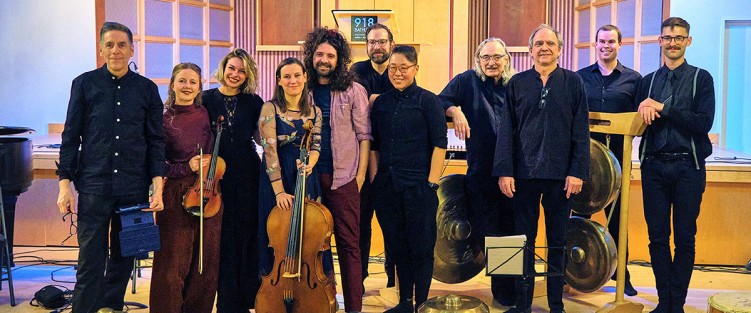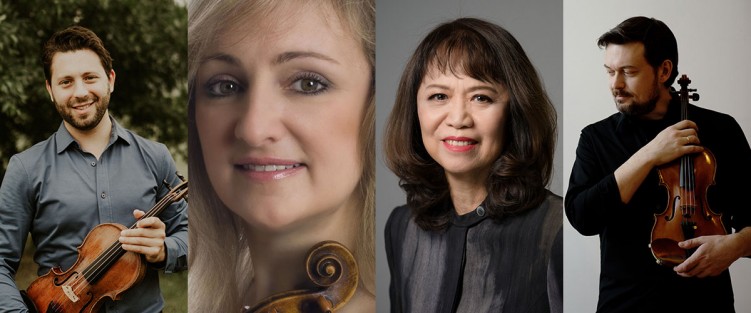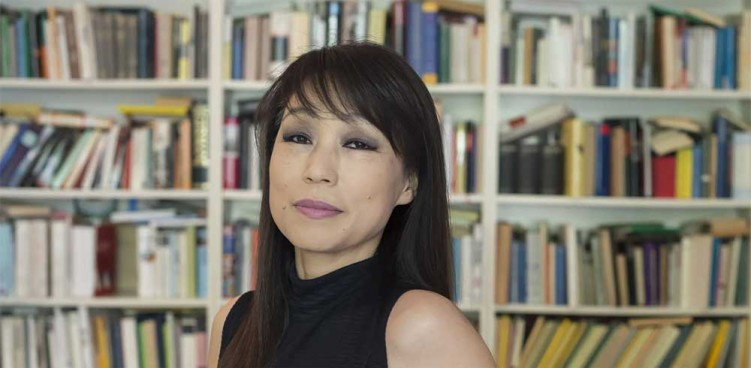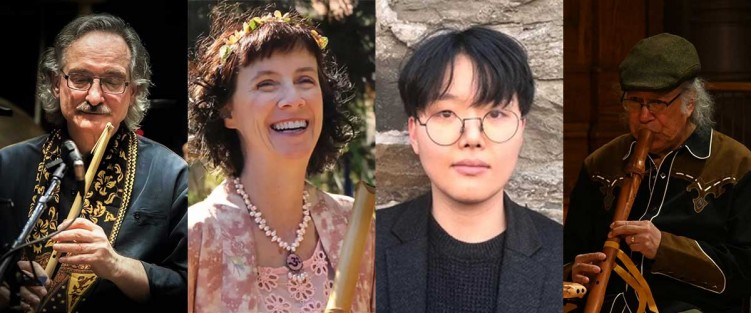 It is often said that music has a special power to bring diverse people and cultures together. Two events in July occurring just two days apart highlight this truth – one local, one international.
It is often said that music has a special power to bring diverse people and cultures together. Two events in July occurring just two days apart highlight this truth – one local, one international.
North Wind: On July 16 at Toronto’s Heliconian Hall, North Wind Concerts is bringing together four Toronto-based musicians – each playing different types of wood or bamboo flutes – onto the same stage, for a concert titled “Encircling the World: Flutes II” part of an ongoing series. Combining flutes from Korea (the daegeum played by Jin Cho), from Japan (the shakuhachi played by Debbie Danbrook), from the Anishinaabeg First Nation (the pipigwan played by Rene Meshake), and from Indonesia (the suling played by Andrew Timar), the focus will be on an exchange of musical ideas and approaches to performance.
As artistic co-director Alison Melville explained to me, although many efforts have been made over the past 20 years by classical music organizations to stretch thematically beyond the boundaries of the European tradition, not much has changed when it comes to drawing in new audiences. “There’s something more fundamental that has to happen,” she said.
One key ingredient often missing is a primary focus on the music itself. How do people from different cultural backgrounds actually approach playing the music, and when, and why? “What instruments do you play that are like mine? If I listen to the way you play your instrument, how can that inform me about how one plays music, and even in understanding what music is?” Even though different fundamental techniques may be used when it comes to different wind instruments, exploring common elements, such as how to play with air, for example, can be informative. Regarding drawing in new audiences, people familiar with the music of their own culture are more likely to attend a concert such as “Encircling the World: Flutes II”; in so doing, they will be exposed to other approaches to music-making, traditions that they otherwise wouldn’t experience.
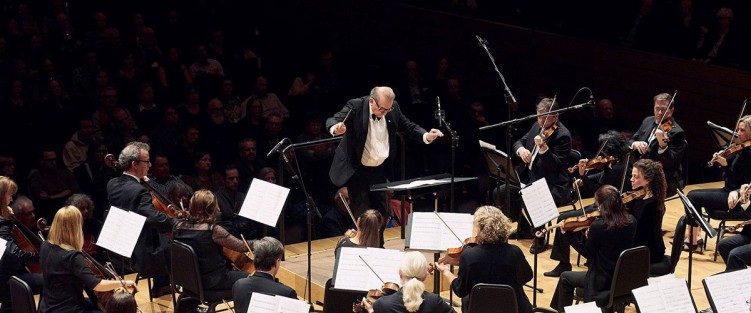 April 2023 will be a busy month for Esprit Orchestra, Canada’s only full-sized, professional orchestra devoted to performing and promoting new orchestral music. First up will be two programs in this year’s edition of the New Wave Festival, on April 12 and 16, followed by their Season Finale concert on April 23, all designed to celebrate Esprit’s 40 years of music making.
April 2023 will be a busy month for Esprit Orchestra, Canada’s only full-sized, professional orchestra devoted to performing and promoting new orchestral music. First up will be two programs in this year’s edition of the New Wave Festival, on April 12 and 16, followed by their Season Finale concert on April 23, all designed to celebrate Esprit’s 40 years of music making. 

